Introduction
In today’s fast-paced business landscape, Human Resources (HR) professionals are facing unprecedented challenges. The demands of managing a diverse workforce, navigating talent shortages, and ensuring a productive and engaged workforce have become increasingly complex. To address these challenges and stay competitive, organizations are turning to Artificial Intelligence (AI) as a transformative solution for HR. In this in-depth exploration, we will delve into the profound impact of AI tools for HR solutions.
The HR Landscape Evolution
In today’s digital era, the role of Human Resources (HR) within organizations has undergone a seismic transformation. The once traditional and paper-based HR processes are now relics of the past. The HR landscape is evolving rapidly, shaped by technological advancements, changing workforce demographics, and the ever-increasing demand for efficiency and strategic HR practices.
HR Challenges and the Digital Era
The traditional responsibilities of HR, such as hiring, onboarding, performance management, and employee engagement, have become increasingly complex. Here’s a closer look at some of the key challenges HR professionals face in this new digital landscape:
Talent Scarcity: With a global talent shortage, organizations are engaged in fierce competition to attract and retain top-tier talent. HR must find innovative ways to identify and secure skilled individuals.
Multi-Generational Workforce: Modern workplaces often consist of employees from multiple generations, each with unique preferences, communication styles, and work expectations. HR must navigate these generational differences to create a harmonious workplace.
Regulatory Changes: The HR landscape is continually shaped by evolving labor laws and regulations, requiring HR professionals to stay updated and ensure compliance.
Data-Driven Decision-Making: The need for data-driven HR decisions is on the rise. HR teams are expected to leverage data analytics to optimize recruitment, performance management, and talent development.
Employee Experience: As employees seek a more personalized and engaging work experience, HR must prioritize creating a positive and inclusive workplace culture.
The Need for AI tools for HR Solutions
In the face of these challenges, organizations are turning to Artificial Intelligence (AI) as a transformative solution for HR. AI offers the potential to revolutionize traditional HR practices and provide innovative solutions to age-old problems.
AI can automate routine and time-consuming HR tasks, allowing HR professionals to focus on strategic initiatives that enhance employee experiences and drive organizational success. Additionally, AI’s data analytics capabilities empower HR teams to make informed decisions regarding talent management, recruitment, and employee engagement.
In the following sections, we will explore in-depth how AI is reshaping HR practices, the benefits it offers, potential drawbacks, and what the future holds for AI tools in HR.
Stay tuned as we dive deeper into the world of AI in HR, uncovering its transformative potential and shedding light on how it can address the challenges faced by HR professionals in the digital era.
AI tools in HR: A Strategic Partnership
AI is not just a buzzword; it’s a strategic partner in HR’s journey to transform and enhance its operations. This section explores the pivotal role that AI plays in reshaping HR practices and optimizing the overall HR landscape.
The Power of AI tools in HR
Artificial Intelligence, often referred to as AI, is more than just a technological trend. It’s a powerful tool that can drive significant improvements in HR operations. Let’s delve into how AI is revolutionizing HR:
Simplifying Recruitment: Traditional hiring processes involve manual resume screening and numerous interviews. AI tools can swiftly analyze thousands of resumes, pinpointing the most qualified candidates. This accelerates hiring timelines and ensures a better match for organizations.
Enhancing Employee Engagement: HR faces the challenge of boosting employee satisfaction. AI-driven chatbots offer personalized interactions, instant feedback, and timely support. They contribute to a responsive and engaged workforce.
Informed Decision-Making: HR’s role demands data-driven choices. AI collects, analyzes, and presents HR data effectively. This empowers HR teams to spot trends, make informed decisions, and tailor strategies for maximum impact.
Personalization Matters: Employees expect personalized experiences, from training to career development. AI enables HR to deliver tailored learning, career paths, and benefits based on individual preferences and skills.
Bias Mitigation: Unconscious bias can affect hiring. AI evaluates candidates objectively, reducing bias and promoting fair hiring practices. This fosters workforce diversity and elevates the quality of hires.
AI’s role in HR extends far beyond these examples, touching nearly every facet of HR operations. Its ability to automate routine tasks, analyze data, and offer personalized interactions has the potential to transform the way HR professionals work and contribute to an organization’s success. To discover for more AI tools you can check our post Best AI Tools for Recruiting and HR.
Maximizing HR Efficiency with AI
The benefits of integrating AI into HR processes are profound and far-reaching. In this section, we’ll explore these advantages in greater detail, shedding light on how AI enhances HR efficiency and productivity.
Benefits Beyond Measure
AI doesn’t merely optimize HR processes; it transforms them entirely. Here’s a closer look at some of the most significant benefits of incorporating AI into HR practices:
Enhanced Efficiency: AI revolutionizes HR by streamlining tasks, enabling a strategic focus on fostering workplace culture and success.
Precision and Insight: AI empowers HR with accurate data insights, enhancing decision-making in areas like turnover prediction and compensation optimization.
Heightened Productivity: AI handling admin tasks allows HR to excel in talent acquisition, leadership development, and engagement, enhancing productivity and business efficiency.
24/7 Accessibility: AI-driven chatbots and virtual assistants provide round-the-clock support to employees, promptly addressing HR-related queries and assisting with benefits enrollment, ensuring help is always at hand.
Superior Candidate Experience: During recruitment, AI offers a seamless and engaging experience to candidates. It delivers swift responses, efficient interview scheduling, and valuable insights into the organization’s culture and values.
Cost-Effective Operations: Automating HR tasks through AI significantly cuts operational costs. Reduced manual processes translate to fewer errors and less time spent on administrative work, yielding substantial savings.
Scalable Solutions: AI-powered systems seamlessly adapt to an organization’s evolving needs, accommodating sudden surges in recruitment or managing HR responsibilities for a growing workforce without compromising quality.
Data-Driven Wisdom: AI extracts invaluable insights from extensive datasets, enabling HR professionals to discern trends and patterns. These insights are instrumental in shaping HR strategies and policies that align with organizational objectives.
Personalized Experiences: AI tailors the employee journey by customizing learning and development plans, career pathways, and benefits packages according to individual preferences and performance.
These benefits empower HR to streamline operations and enhance the employee experience, creating a thriving workplace.
The AI-HR Future: What Lies Ahead
The future of HR is closely intertwined with AI. In this section, we’ll explore the evolving landscape of AI for HR and discuss the potential trends and developments that will shape the future of HR practices.
The HR Professional of Tomorrow
The HR profession is undergoing a profound transformation, thanks to AI. Here’s how HR professionals are evolving to meet the challenges and opportunities of the future:
Data Analysts and Strategists: HR professionals are becoming proficient data analysts and strategists. They leverage AI-generated insights to make informed decisions about talent management, workforce planning, and employee engagement.
Talent Analytics: AI-driven talent analytics are becoming a cornerstone of HR practices. HR teams use these analytics to predict employee turnover, identify skills gaps, and create talent pipelines that align with the organization’s long-term goals.
Personalization: As AI capabilities expand, HR professionals will increasingly personalize the employee experience. This includes tailoring learning and development programs, career paths, and benefits packages to individual employee preferences and needs.
Workforce Planning: AI assists HR in strategic workforce planning. HR professionals can anticipate staffing needs, skill requirements, and succession planning more accurately, ensuring the organization remains agile in an ever-changing job market.
AI-Powered HR Assistants: AI-driven virtual HR assistants will become commonplace, providing employees with instant support and guidance. These assistants will handle routine HR inquiries, freeing HR professionals for more complex tasks.
The Gig Economy and HR’s Adaptation
One of the most significant workforce shifts in recent years has been the rise of the gig economy. HR must adapt to this evolving landscape:
Flexibility: HR policies and practices will need to be flexible to accommodate gig workers, freelancers, and contractors. HR professionals will need to develop strategies for integrating gig workers effectively into the organization.
Talent Acquisition: AI will play a crucial role in identifying and onboarding gig workers quickly. HR will need to develop agile talent acquisition processes to meet the dynamic demands of the gig economy. To know more, you can check our post: Recruitment and Talent Acquisition with AI-Powered Applicant Tracking Systems
Skills Verification: HR will need to employ AI-driven tools to verify the skills and qualifications of gig workers, ensuring they meet the organization’s standards.
Continuous Learning: As the gig economy thrives on specialized skills, HR will need to focus on continuous learning and upskilling initiatives to keep gig workers competitive and engaged.
Compliance: HR must stay up-to-date with evolving labor laws and regulations that pertain to gig workers, ensuring compliance and fair treatment.
Conclusion: Navigating the AI-HR Future
The future of HR is undeniably intertwined with AI. HR professionals must continue to adapt, embracing AI as a valuable tool in their arsenal. By leveraging AI’s capabilities in data analytics, talent management, and personalization, HR can lead organizations toward a more agile, efficient, and employee-centric future.
As HR transforms into a strategic partner, HR professionals will find themselves at the forefront of shaping organizational success. The fusion of AI and HR represents not just a technological revolution but a fundamental shift in how organizations attract, develop, and engage their most valuable asset: their people.
In this ever-evolving landscape, HR professionals must remain agile, adaptable, and committed to the principles of fairness and equity. With AI as their ally, they are poised to drive the future of work toward greater heights of productivity, engagement, and innovation.
Conclusion
In conclusion, AI is not just a tool; it’s the future of HR. By embracing AI for HR solutions, organizations can not only address current challenges but also stay ahead in a rapidly changing business environment. AI enables HR professionals to foster a diverse, high-performing workforce that propels them toward their goals. AI is not just an option; it’s a necessity to unlock HR’s full potential and drive organizational success in the digital age.

